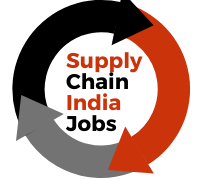Well yes, more and more companies are looking for and then inserting figures like that of the “Demand Planner” into their supply chain. But what does a Demand Planner specifically do?
.

.
What does a Demand Planner or Sales Forecaster do?
.
The demand planner, also known as a sales forecaster, operates as its name suggests in order to achieve the most accurate sales forecasts possible, but also to optimize delays, the use of means of production, to regulate the quantities produced and to minimize costs, thus allowing the company for which it works, to produce in a reasoned manner. He is a strategic member of the supply chain’s management.
.
Sales forecaster /Demand planner is at the centre of the supply chain
.
First of all, a proper distinction must be made between the various sectors in which this figure is included. This is because the Demand Planner in the first place is the one who carries out sales forecasting activities with related management of promotions on products. But this forecast, like the resulting promotional activity to be activated, is closely related to the type of product sold: if technological, belonging to the luxury market, fast consumer goods from healthcare to food & beverage.
.
The forecast activity in fact changes is built and modified according to the shelflife of the product, that is, according to the “duration” of the same from the moment of production until the sale, period in which it is necessary that all the qualities of the product are kept intact. It is easy to understand that a TV has a different, if not superior, shelflife than a chocolate cream, and that the latter still has a different one than a seasoned product or mosquito spray.
.
What are the Demand Planner’s roles and duties?
.
Central to the relationship between the company’s several departments and in particular the sales, production, supply chain, finance and marketing departments of the company, and generally attached to the supply chain manager, the demand planner seeks to reduce the uncertainty associated with the lack of knowledge of the future. Based on statistical and mathematical models, sales history, market trends and seasonality, in order to provide stable data to production and the company on its future sales.
.
He is therefore in charge of producing mathematical models based on sales history and a set of external factors such as seasonality, weather, political events, etc. in order to communicate reliable sales forecasts to all the company’s services.
.
The sales forecaster function is a key function within the supply chain’s management, upstream of supplies and planning. And the accuracy of the forecast results in good planning and scheduling in an industrial setting. A demand planner, therefore, has no right to make mistakes, or at least must be as accurate as possible, because the activity and health of the company depend on its prognosis.
.
Demand planning is at the heart of the flows
.
Demand planning is the art of organizing and regulating the flow of orders of goods (raw material and semi-finished products) as well as regulating production. Indeed, in the current economic context, the need for reliable forecasting is based on the obligation to minimize inventories without taking the risk of disruption on recurring and permanent products.
.
A true conductor, the sales forecaster leads meetings with the marketers, salespeople and supply chain players (production, logistics) in order to provide a long, medium and short-term projection of the demand for final products, in the most accurate way possible while taking into account periods of promotions/campaigns, new product launches, or flash sales and this thanks to the information that other services transmit to it.
.
The role of Demand Planner is becoming more and more specialized, especially as the activities followed are very specific and go beyond the management of stocks at the warehouse level.
.
The forecasting activity implies the constant relationship with other business functions related to trade marketing, sales, customer service, production and distribution centre itself. , also monitoring sales based on market analysis and benchmarking.
.
Set the most accurate forecasts
In order to be able to adapt its forecasts and bring them as close as possible to reality, it is in charge of doing analyses on an annual, quarterly, monthly, weekly and sometimes daily basis, on historical sales performance. This analysis will then allow it to draw parallels between different periods and adjust its forecasts accordingly.
.
In addition, the demand planner must compare the actual results of the company’s activity with the initial forecast statistics. Indeed, forecasts can, and this happens very regularly, not exactly correspond to the reality of things. Some external factors that may disrupt the usual cycle, the forecaster must analyze these discrepancies and propose solutions and means to minimize them.
.
The sales forecaster needs to be comfortable with its tools. He helps define the parameters of the forecasting tool to optimize the reliability of forecasts. Indeed, in order to help him in his prognostics, the demand planner relies on analysis software. It, therefore, participates in the optimization of these softwares in order to obtain ever more reliable and accurate analyses.
.
In the context of much more volatile and complex demand, the emergence of new distribution channels and increasing competition, the forecasting function has evolved considerably, has become more professionalized and is now a key element in the proper functioning of an organisation.
.
What are the qualities required to be a good demand planner?
.
The main personal qualities of a sales forecaster are rigour, organizational skills, analytical skills, sense of anticipation and responsiveness, sense of relationship, strength of conviction and persuasion, perseverance, and good team spirit.
.
This position requires quick decisions in the event of problems, but also he awareness of managing delays. It is also requested to be able to plan for medium- and long-term planning.
.
What key skills should a sales forecaster have?
.
The sales forecaster must be equipped with key skills such as structured and numerical presentation capability, have a good knowledge of demand mechanisms, master demand forecasting software (APO, JDE, Manugistics, Futureview, etc.), management software (ERP, SAP, etc.) as well as excellent mastery of office tools (Excel), and finally database management software (Access, SAS, etc.). A good knowledge of MRP II methods is required. Finally, the mastery of a foreign language (English) is appreciated.
.
It is also important to have good communication skills and interpersonal skills in order to best facilitate S&OP meetings ie sales and operations planning. The sales forecaster is at the centre of the S&OP meetings.
.
What training is required to become a demand planner?
.
Several training courses are possible, especially those specialized in production management and logistics. Pursuing a professional license is often an asset to appeal to recruiters. The names of these courses are often different from one institution to another: it is recommended to learn about each institution’s programs and opportunities.
.
The best choice would be to go to an engineering school or a business school with a specialization in supply chain.
.
Some recruiters, however, like profiles with a professional license in logistics, supply chain, production management, with several years of sales experience.
.
Where does a sales forecaster come from?
.
The sales forecaster function is accessible in internal or external mobility following the exercise of a close function in the supply chain sector of the type responsible for stocks, supply chain coordinator, supply manager or supply planner, for a period of at least two to five years.
.
Nevertheless, more and more companies are turning to inexperienced profiles (0 to 3 years of experience) but diplomas from an engineering school or a supply chain training in order to enlist the services of a person who is comfortable with numbers and who will create an inter-service link.
.
What to do after a career in demand planner?
.
The outlook for the sales forecaster is promising and interesting, in particular, due to its wide openness to other services. He can thus claim positions in purchasing, marketing or logistics. Nevertheless, for many, the classic evolution is to reach a position of manager demand planning, after several years of successful experience in this position and later, apply for the title of logistics manager, Inventory Manager or Production Manager. The purpose is usually a position of manager or supply chain manager.
.
Who recruits demand planners?
.
The demand planner is involved in industrial enterprises (including consumer products), trade and distribution, as well as transport and logistics companies. This is an increasingly strategic position for companies of all kinds as it can allow efficient inventory management and results in a decrease in square meters reserved for storage.
.
Sometimes the difficulty of companies is to find a person with specific skills matured on short, medium and long-term forecasting activities by channel and by product, instead finding more and more often profiles with broader skills and matured extensively within the Supply Chain.
.
In this case, the advice is to specialize in a role that requires so much organizational ability, sensitivity to the numerical data as well as attitude to problem-solving in times of criticality (overstock or stock out), all seasoned by a strong propensity for interpersonal relationships, to be kept constant within the inter-functional group.
.
What does a Warehouse Manager do?
.
